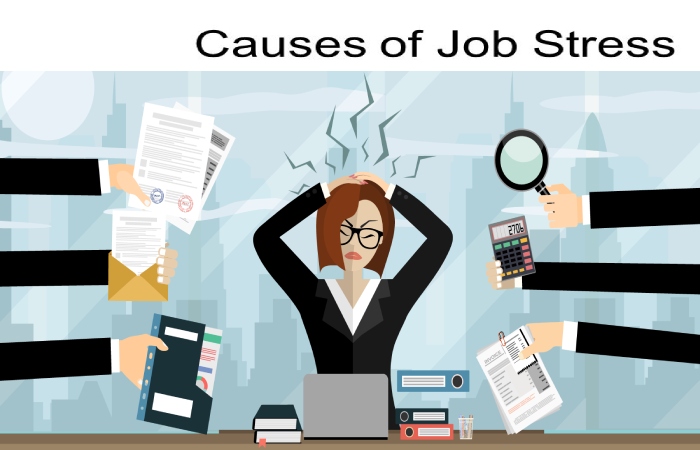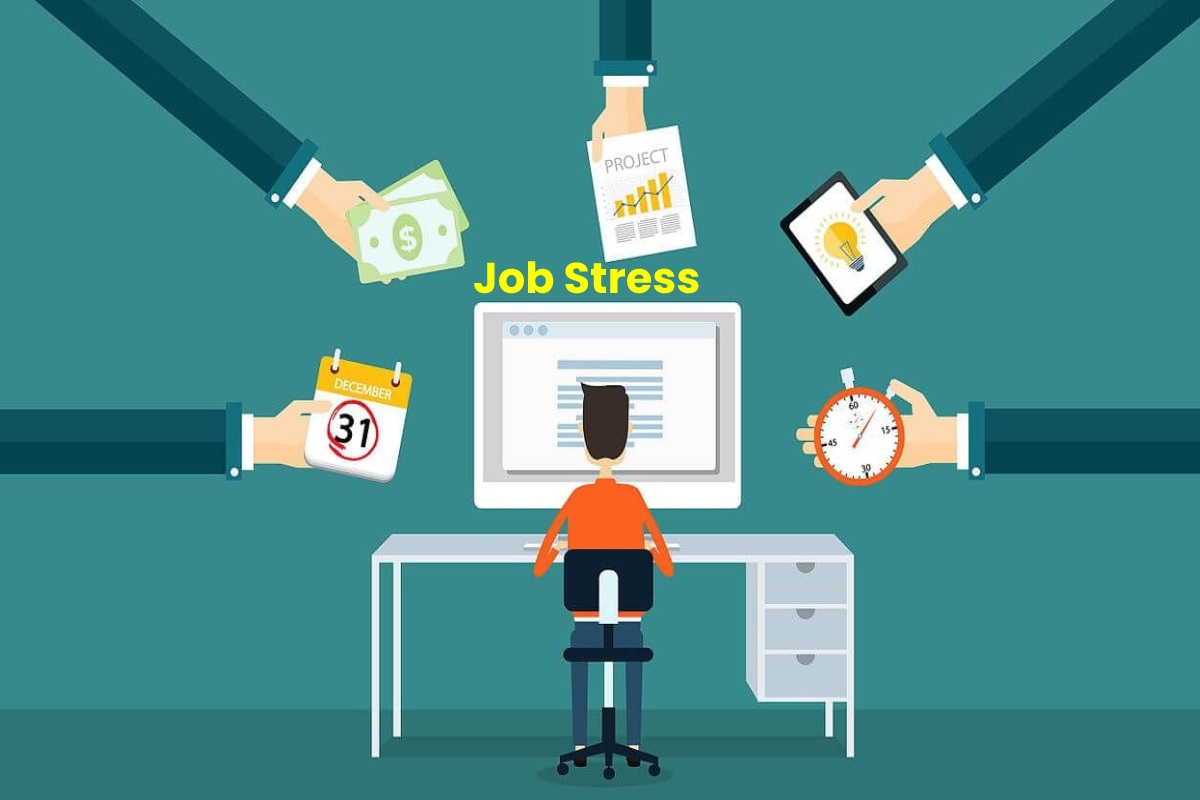Table of Contents
Job Stress Definition
Job stress is a type of stress and causes by conditions in the workplace that negatively affect an individual’s performance and overall well-being of his body and mind. Work-related stress is the result of a conflict between the role and needs of an individual employee demands of the workplace.
All workers have felt, at some point, the pressure of work-related stress. Any job can have stressful elements, even one that does out of a true vocation. In the short term, it may be experienced only as a feeling of challenge or pressing tension.
Still, when work stress becomes chronic, it can be overwhelming and detrimental to physical and emotional health. The causes of stress that occur at work cannot always be avoided; however, steps can control them before they become a health threat.
What are the Causes of Job Stress in the Environment?

Among the most common are the following:
- A low salary.
- An excessive workload.
- Little challenging or stimulating job.
- Few opportunities to grow within the company.
- Lack of support from colleagues or superiors.
- Lack of control over the decisions to make within the company.
What are the Potential Effects of Job Stress?
Unfortunately, work-related stress does not go away when the workday ends and you return home, and the accumulation of it, day after day, can have a very negative effect on your health.
In the short term, a demanding work environment can contribute to headaches, stomachaches, sleep disturbances, bad moods, and difficulty concentrating.
When it becomes chronic, it can result in anxiety, insomnia, and hypertension, gradually weakening the immune system resulting, in severe cases, depression, gastric ulcers, the development of addictions, or even heart disease.
7 Ways to Deal with Job Stress

To deal with stress effectively, it is important to take the following measures:
1. Identify the Source of Stress
- Many times the feeling of stress in general and manifests itself in any element of the work environment. However, the causes of it are likely pretty specific.
- Identifying where the pressure is coming from will go a long way in determining how to deal with it.
2. Developing Healthy Responses
- Instead of fighting stress through excess food, tobacco, or alcohol, developing a healthy response plan will be more beneficial in the long run.
- Still, it will also bring intelligence of reward that will benefit counteract stresses.
- Negative effects. Exercise, meditation, going for a walk, pursuing a hobby, or spending more time with your family are more powerful tools in fighting stress than is believed.
3. Set Boundaries
- In today’s digital world, it’s easy to feel the pressure to be available 24 hours a day.
- However, a healthy work-life balance includes a door that closes when the workday ends.
- And does not reopen until the start of the next day without feeling guilty or lacking a sense of self.
4. Set Aside Some Time to Recharge
- To avoid the adverse belongings of chronic stress and exhaustion, it is necessary to recharge.
- This recovery process requires mentally disconnecting from work, turning off the phone, not opening the mailbox, and even.
- If possible, keeping a distance from co-workers, no matter how positive the relationship on a personal level.
5. Learning to Relax
- Enjoying a meal, a walk, or a social interaction (without thinking about work or talking about it).
- Or other more advanced techniques such as meditation, deep breathing exercises, and introspection.
- It can help slow down the feeling of stress.
6. Communicate the Problem to Bosses and Superiors
- A happy employee is an efficient and productive employee, so a boss who cares about the future of his business.
- It will try to do everything possible to create a work environment in which your employees promote well-being.
- Communicating the source of stress can help management be aware of the problems that cause a decrease in productivity.
- And modify working conditions to make them more enriching and less stressful.
7. Get Professional Help
- Seeking benefits from friends and family to cope with stress can bring answers to dealing with it.
- Still, in severe cases, the idea is to turn to a specialist since a professional psychologist can provide powerful personalized tools for coping.
- The adverse effects of mental exhaustion and feelings of fatigue come after prolonged exposure to stress.
Conclusion
Job stress has advantages and disadvantages. If people handle stress effectively, this can provide a lot of benefits to people. But if people will not take stress effectively, this may lead to many problems for people. Job stress is a common problem in modern life.

